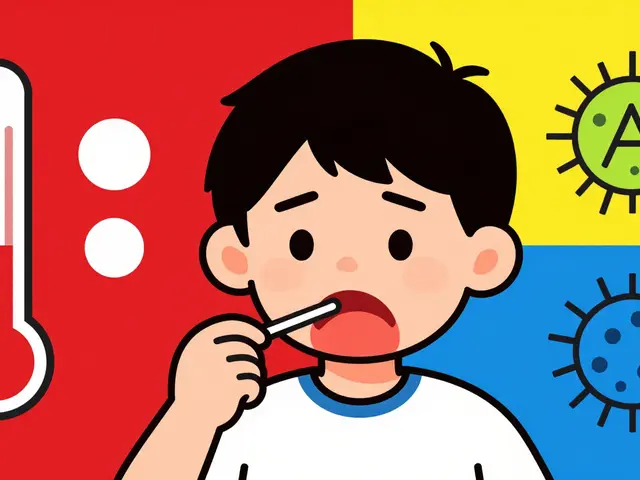Chronic Fatigue Syndrome – What It Is and How to Manage It
If you’ve ever felt exhausted for weeks on end without a clear reason, you might have heard of chronic fatigue syndrome (CFS). It’s not just feeling tired after a long day; it’s a deep, lingering lack of energy that doesn’t improve with rest. Knowing the basics can help you spot the condition early and start coping before it takes over your life.
Common Symptoms You Shouldn't Ignore
The hallmark of CFS is persistent fatigue lasting at least six months. But the syndrome comes with a handful of other clues:
- Post‑exertional malaise – even mild activity makes you feel worse for days.
- Unrefreshing sleep – you wake up feeling just as tired as when you went to bed.
- Cognitive fog – trouble focusing, remembering names, or finding words.
- Headaches, sore throat, swollen lymph nodes, and muscle pain are also frequently reported.
If several of these appear together and last a long time, it’s worth talking to a doctor who knows about CFS. Early diagnosis can stop the condition from spiraling.
Practical Tips to Reduce Daily Fatigue
There’s no cure yet, but you can make life easier with small changes:
- Pace yourself. Break tasks into short bursts and take regular breaks. A 15‑minute walk followed by a rest period often works better than trying to power through.
- Sleep hygiene matters. Keep the bedroom dark, cool, and quiet. Aim for the same bedtime and wake‑up time every day, even on weekends.
- Gentle exercise. Light stretching or yoga can improve stamina without triggering post‑exertional crashes. Start with five minutes a day and listen to your body.
- Balanced meals. Focus on protein, healthy fats, and complex carbs. Skipping meals makes fatigue worse; small, frequent snacks keep blood sugar steady.
- Stress management. Deep breathing, meditation, or short walks in nature lower cortisol levels that can worsen CFS symptoms.
Staying hydrated is another simple win – aim for eight glasses of water a day unless your doctor advises otherwise. Some people find that reducing caffeine and alcohol helps smooth out energy swings.
While you experiment with these habits, keep a symptom diary. Write down what you ate, how much you rested, and any flare‑ups. Over weeks, patterns emerge that help you fine‑tune your routine.
The tag page also gathers articles on related topics such as medication alternatives, supplements, and lifestyle tricks. Browse the list to find specific guides on sleep aids, natural energy boosters, or safe ways to buy medicines online – all useful resources for anyone dealing with chronic fatigue.
Remember, CFS is a real medical condition, not just “being lazy.” With the right knowledge and daily adjustments, you can reclaim more of your day and feel less trapped by constant exhaustion.
- By Percival Harrington
- /
- 2 Jun 2023
Atorvastatin and Chronic Fatigue Syndrome: Is There a Connection?
As a blogger, I recently came across an intriguing topic discussing the possible connection between Atorvastatin and Chronic Fatigue Syndrome. Atorvastatin is a medication commonly prescribed for lowering cholesterol levels, while Chronic Fatigue Syndrome is a long-term illness characterized by extreme tiredness. Some studies suggest that Atorvastatin may contribute to the development or worsening of Chronic Fatigue Syndrome symptoms, but the exact relationship between the two is still unclear. Further research is needed to determine whether Atorvastatin is a potential risk factor for Chronic Fatigue Syndrome or if there is no direct link between them. Until then, it's essential for patients to discuss any concerns with their healthcare providers and monitor their symptoms closely.






